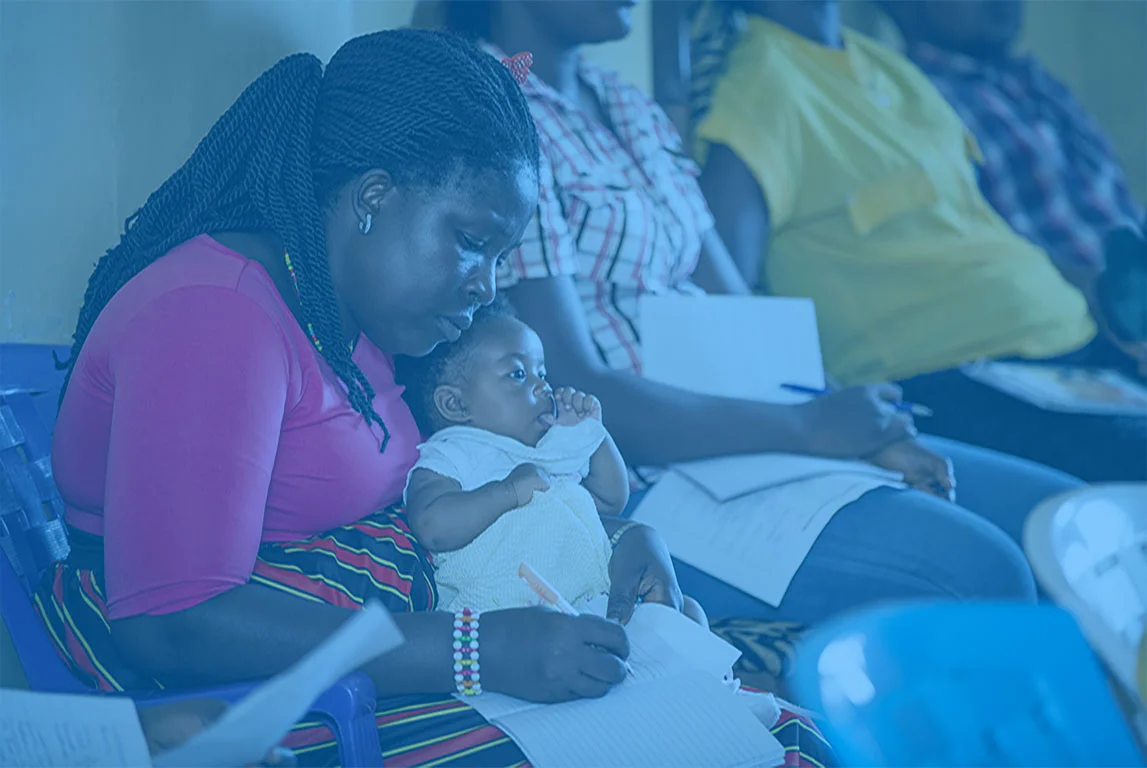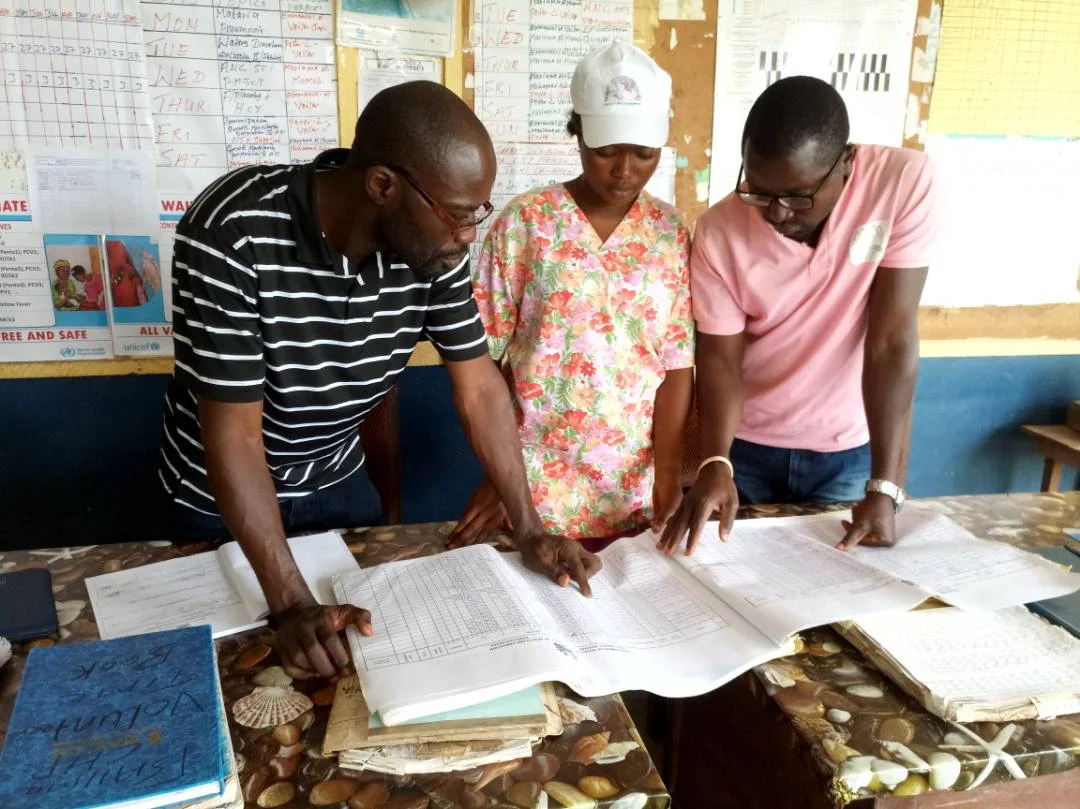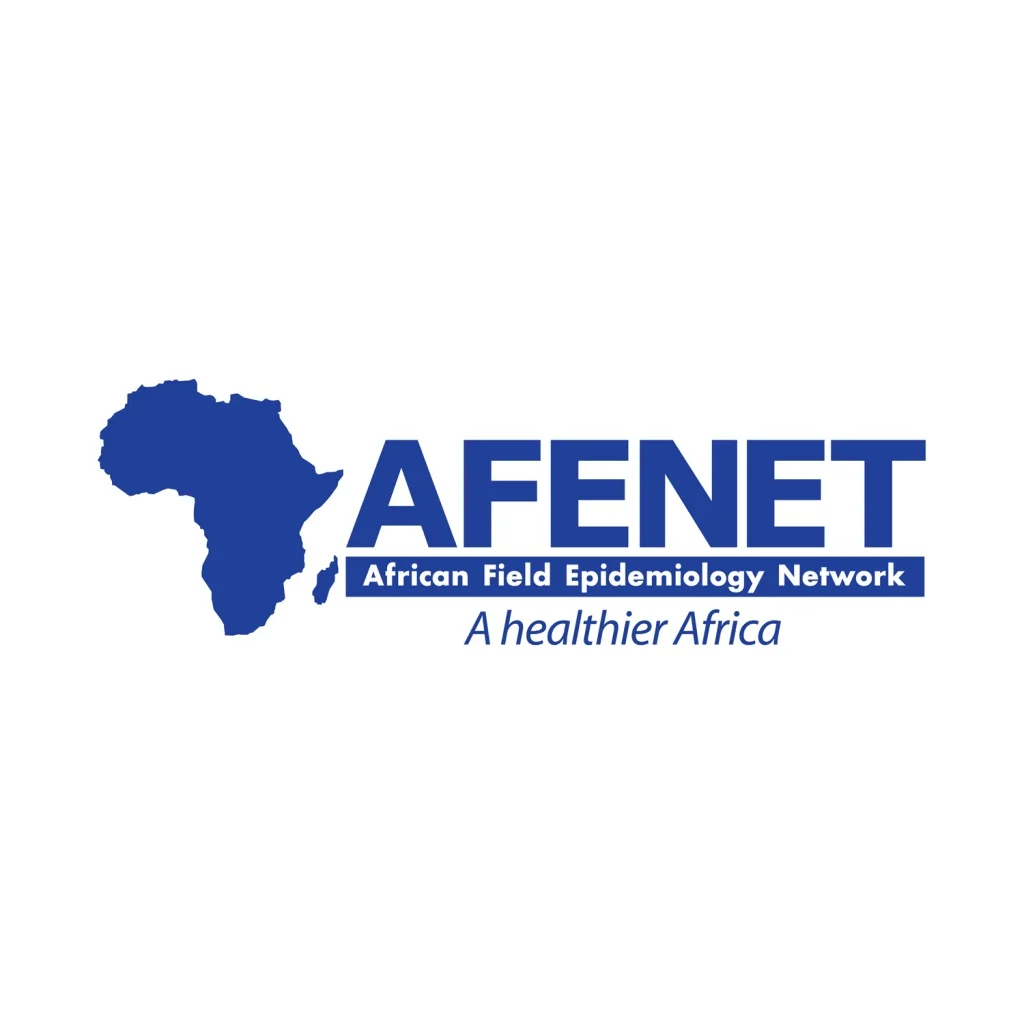Field Epidemiology Training Program (FETP) is a service-based training program whose purpose is to train public health workers in the principles and practices of field epidemiology as they provide service to their countries.
country
Sierra Leone
funding
U.S. Centers for Disease Control & Prevention
AFENET
FETP National Mentor Amara Sheriff conducting supervised data quality audits with mentee.
eHealth in partnership with Ministry of Health and Sanitation, CDC, and AFENET have implemented FETP in Sierra Leone since June 2016. Under the Directorate of Health Securities and Emergencies, FETP is an in-service program focused on training district and national public health workers in public health emergency response and strengthening Sierra Leone’s public health surveillance system. The program integrates 25% didactic learning with 75% fieldwork.
The 3-month FETP-Frontline has trained 5 cohorts and 100 public health workers since its establishment in 2016.
FETP-Intermediate was introduced in 2017 with the aim of training supervisors in managing disease response, strengthening public health surveillance, and mentorship. In July 2018 FETP-Intermediate will graduate its first cohort, 11 residents from MoHS, MAFS, and RSLAF.
eHA's role
Manage the implementation of FETP
Coordinate with CDC and AFENET to ensure program activities are in alignment with MoHS strategy
Support the logistics and operations of workshops and mentorship schemes
Provide strategic technical assistance towards public health workforce development in Sierra Leone
who benefits
The program targets Sierra Leone’s public health officials under various ministries (MoHS, MAFS, RSLAF, SLP) with key responsibilities in disease monitoring, surveillance, and response
The people of Sierra Leone indirectly benefit from the program as the country’s surveillance system and overall public health emergency response system are strengthened
Impact
5
cohorts conducted and 100 public health professionals trained in Frontline-FETP
99%
FETP graduates currently using their training in the Sierra Leone public health system
100%
national coverage with residents from all 14 districts and representation from health, agriculture/animal health, public health laboratory, border health, police and military sectors








